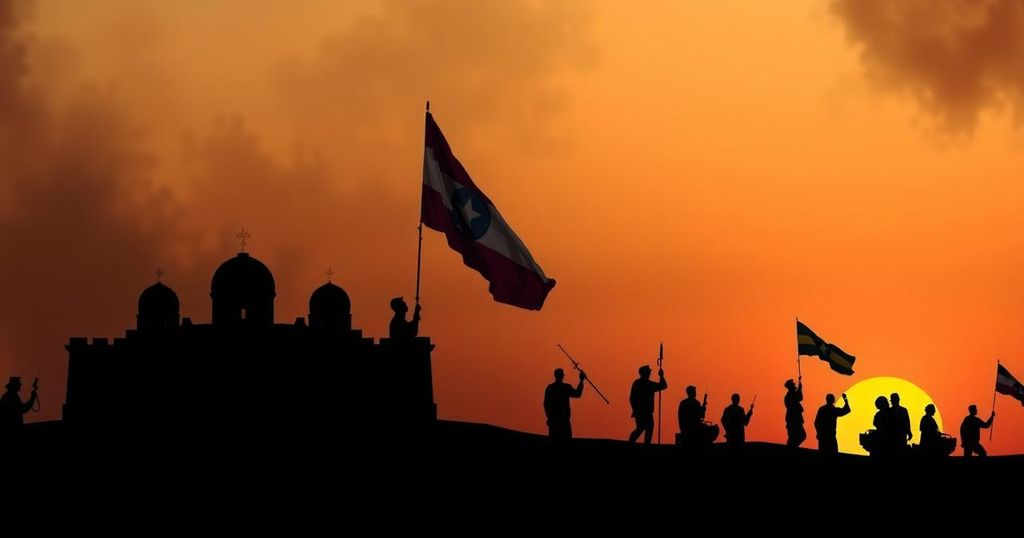Tensions Rise Between Egypt and Ethiopia Over the Grand Ethiopian Renaissance Dam
Summary
The tensions between Egypt and Ethiopia are intensifying as Ethiopia’s Grand Ethiopian Renaissance Dam approach completion, raising concerns over water access for Egypt, which relies heavily on the Nile. Recent agreements between Egypt and Somalia, and Ethiopia and Somaliland, have fueled diplomatic disputes. Prime Minister Abiy’s assertive stance on sovereignty contrasts with internal challenges in Ethiopia, with some analysts suggesting a potential for diplomatic resolution facilitated by Turkey amidst a backdrop of increasing regional instability.
As Ethiopia nears the completion of its Grand Ethiopian Renaissance Dam (GERD), tensions with Egypt are escalating significantly. Egypt depends heavily on the Nile River for its freshwater supply and has been vocally critical of the GERD since its inception in 2011. Timothy E. Kaldas, Deputy Director at the Tahrir Institute for Middle East Policy, stated that “Egypt heavily depends on Nile water as a freshwater source” yet has been unable to secure any binding agreements with Ethiopia regarding its water access, which is a matter of national security for Egypt. In recent developments, a security agreement between Egypt and Somalia, as well as a deal between Ethiopia and Somaliland, has further complicated diplomatic relations. Kaldas noted that Egypt’s military support and peacekeeping involvement in Somalia is likely aimed at fostering an ally on Ethiopia’s border. “One cost-efficient way to project military power towards Ethiopia without direct confrontation is through a peacekeeping mission,” Hager Ali from the GIGA Institute mentioned, emphasizing Egypt’s strategy to strengthen its regional influence through peacebuilding. Meanwhile, in Ethiopia, Prime Minister Abiy Ahmed has adopted a defiant stance, asserting that his country will “not negotiate with anyone on Ethiopia’s sovereignty and dignity.” The agreement between Ethiopia and Somaliland to lease coastal land has heightened tensions, with the Somali central government opposing the recognition of Somaliland’s independence. Samira Gaid, a security analyst, warned that Ethiopia must withdraw its memorandum or face consequences, emphasizing that over 10,000 Ethiopian soldiers currently stationed in Somalia could become outnumbered by Egyptian forces. Internally, Prime Minister Abiy faces mounting domestic pressures amidst ethnic conflicts and dissatisfaction regarding the GERD project. Susanne Stollreiter from the Friedrich Ebert Foundation noted a decline in public enthusiasm for the dam as hopes for increased electricity access remain unfulfilled. Despite the rhetoric, some analysts suggest that Ethiopia may not wish to escalate the conflict. Turkey’s mediation efforts have been deemed promising, with Aydin noting that common ground can be achieved, particularly since stability in the Horn of Africa is a priority for numerous regional and global stakeholders.
Tensions between Egypt and Ethiopia have escalated primarily due to Ethiopia’s Grand Ethiopian Renaissance Dam (GERD), which has significant implications for Nile water rights. Egypt, as a downstream nation, fears that the dam will restrict its access to water, which is vital for its agricultural and domestic needs. Diplomatic maneuvers have intensified with agreements involving Somalia and Somaliland, with implications for regional security and cooperation. The intricate geopolitical dynamics have made the Nile water dispute a focal point of regional stability and national security considerations for both countries.
In conclusion, the situation between Egypt and Ethiopia remains precarious, as both nations navigate their geopolitical ambitions amid rising tensions over water rights and regional alliances. While military posturing is present, there appears to be a potential for diplomatic resolution, particularly with Turkey’s mediating role and the recognition that stability in the Horn of Africa is essential for broader regional security. Continued dialogue and negotiation will be crucial to mitigate the risks of conflict over shared resources.
Original Source: www.dw.com








Post Comment